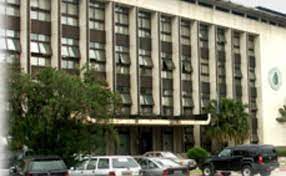
For almost two years, the DRC and the IMF have been negotiating the signature of a financing program. One of the very first conditions was that the board of directors of the Central Bank be brought into compliance with the law adopted in 2018. New directors had been appointed last week, but three of them were still a problem. They would be resigning, it was assured on Tuesday evening on both sides.
The Executive Board of the International Monetary Fund will be held this week. The suspense will have lasted until the end. But the IMF has asked the Democratic Republic of Congo to bring the board of directors of the Congolese Central Bank into line. This is one of the conditions for obtaining this financing program, for which a preliminary agreement was signed last May.
Two of the appointed directors were in fact members of the president’s cabinet, while the third had interests in a local commercial bank.
Before making the decision to replace them, President Tshisekedi had sought the advisory opinion of the Council of State and the Constitutional Court to understand who could be appointed to the position. In Article 52 of the 2018 law, it is clearly specified that members of the president’s cabinets are excluded.
But there are many other constraints, one can neither be employed by a public company, nor even be an employee of a commercial or financial company. The directors of the BCC are not paid, but receive an attendance allowance. “The constraints are such that retired or unemployed people have to be found, even a university professor could not sit on the board,” explains the president’s office.
In order to meet the IMF’s ultimate requirement, the decision was made to replace directors with clear cases of incompatibility. But already, at the highest level of the State, they are thinking of reforming this law to reduce the type of incompatibility without calling into question the independence of the directors.
In any case, these resignations should make it possible to hold the meeting of the Executive Board of the International Monetary Fund on Thursday, July 15. As a reminder, compliance with this program could pave the way for the disbursement of one and a half billion dollars over three years, as well as other funding from foreign donors.
